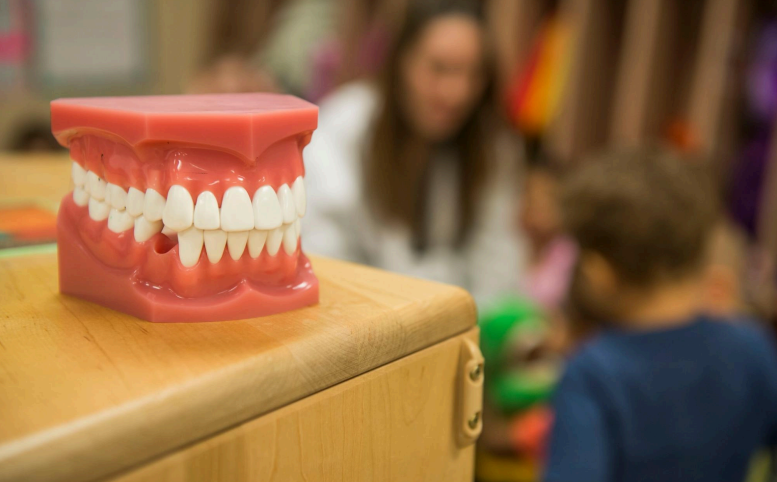
Dental implants are a fantastic solution for replacing missing teeth, providing a permanent and natural-looking alternative to dentures and bridges. However, the success of your dental implants heavily relies on how well you care for them after the procedure. In this blog, Dr. Vrinda and Dr. Saurav from Kumtumb Dental share their expert advice on post-implant care to ensure optimal healing and long-lasting results.
Immediate Post-Surgery Care
1. Managing Discomfort and Swelling
After your dental implant surgery, it’s normal to experience some discomfort and
swelling. Here’s how to manage it:
● Pain Relief: Take prescribed pain medications as directed by your dentist.
Over-the-counter pain relievers like ibuprofen can also help reduce discomfort.
● Cold Compress: Apply an ice pack to the outside of your face for 15-minute
intervals during the first 24 hours to reduce swelling.
2. Oral Hygiene
Maintaining oral hygiene is crucial, but it needs to be done gently in the initial days:
● Rinsing: Avoid rinsing your mouth for the first 24 hours. After that, rinse gently
with a saltwater solution (1 teaspoon of salt in a glass of warm water) several
times a day, especially after meals.
● Brushing: Brush your teeth carefully, avoiding the surgical area. Use a
soft-bristled toothbrush to prevent irritation.
3. Diet and Hydration
Your diet plays a significant role in the healing process:
● Soft Foods: Stick to soft foods like yogurt, mashed potatoes, and smoothies for
the first few days. Avoid hot, spicy, and crunchy foods that can irritate the implant
site.
● Hydration: Drink plenty of fluids, but avoid using straws as the suction can disrupt
the healing process.

Long-Term Care for Dental Implants
1. Oral Hygiene Routine
Keeping your implants clean is essential to prevent infection and ensure longevity:
● Brushing and Flossing: Brush your teeth at least twice a day and floss daily. Use a
non-abrasive toothpaste and a toothbrush with soft bristles to avoid damaging
the implant surface.
● Interdental Brushes: These small brushes can help clean around the implant and
under the gumline where a regular toothbrush might not reach.
2. Regular Dental Check-Ups
Regular visits to your dentist are crucial for the maintenance of your dental implants:
● Professional Cleanings: Schedule professional cleanings every six months to
remove plaque and tartar buildup that you can’t reach with regular brushing.
● Implant Check-Ups: Your dentist will check the health of your implants and
surrounding tissues, ensuring everything is in good condition.
Lifestyle and Habits
1. Avoid Smoking
Smoking can significantly impair the healing process and increase the risk of implant
failure. If you smoke, consider quitting to enhance the success rate of your dental
implants.
2. Limit Alcohol Consumption
Excessive alcohol consumption can slow down the healing process and should be
limited, especially in the first few weeks after your surgery.
3. Protect Your Implants
If you grind your teeth at night, talk to your dentist about getting a night guard. This
custom-fitted device can protect your implants and natural teeth from the damaging
effects of grinding.
Signs of Complications
While complications are rare, it’s important to be aware of signs that may indicate a
problem:
● Persistent Pain or Swelling: If you experience prolonged pain or swelling beyond
the initial healing period, contact your dentist.
● Loose Implant: If your implant feels loose, it could be a sign of implant failure or
bone loss.
● Infection Signs: Symptoms like fever, pus, or severe pain might indicate an
infection and should be addressed immediately.
Conclusion
Caring for your dental implants properly is essential for their success and longevity. By
following these guidelines from Dr. Vrinda and Dr. Saurav at Kumtumb Dental, you can
ensure your implants heal well and stay healthy for years to come. Remember,
consistent oral hygiene, regular dental check-ups, and a healthy lifestyle are key to
maintaining your new smile. If you have any concerns or questions about your dental
implants, don’t hesitate to contact your dentist







